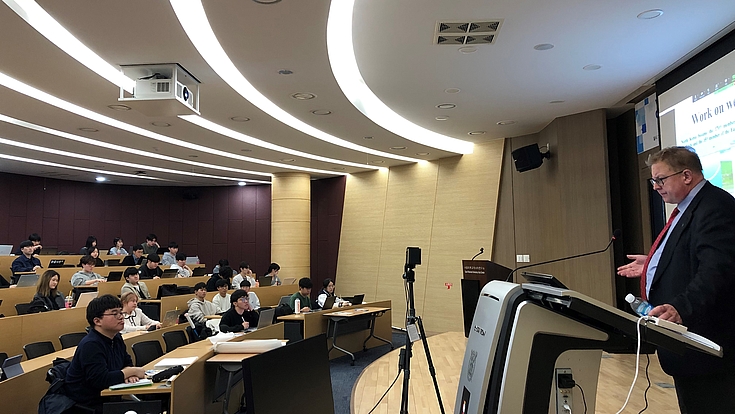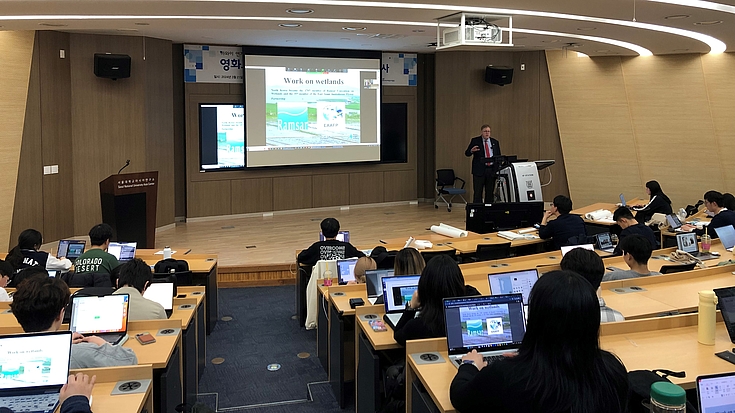Event
Lecture on Geology and Biodiversity in the DPRK

Dr. Bernhard Seliger, representative of the Hanns Seidel Foundation Korea, delivered a lecture at Seoul National University on March 28th. Topic of the lecture was geology and biodiversity in the Democratic People's Republic of Korea (DPRK).
In his discourse, Dr. Seliger underscored the importance of consistent forestation initiatives and the preservation of protected areas to safeguard habitats for diverse wildlife populations. Addressing an eager audience of students, he highlighted the critical role played by migratory birds as key indicators of biodiversity, revealing that an astonishing 90% of birds on the Korean peninsula are migratory, encompassing over 560 species. Notably, the DPRK serves as a crucial sanctuary along migratory flyways, providing essential resting spots for countless avian travelers.
Wetlands, too, emerged as pivotal ecosystems offering vital habitats for migratory birds, enhancing biodiversity, supporting livelihoods, and mitigating climate change. Dr. Seliger elaborated on the DPRK's proactive efforts to conserve these invaluable biohabitats, including initiatives to reintegrate into international environmental networks such as the RAMSAR Convention and the East-Asian-Australasian Flyway Partnership (EAAFP). Moreover, capacity-building projects, including training programs both domestically and abroad, were highlighted as integral components of fostering environmental stewardship and facilitating multilateral exchanges with other nations.

Despite commendable strides in wetland conservation, Dr. Seliger acknowledged persistent challenges, including the identification of suitable partners, navigating international sanctions regimes, and securing sustainable financial resources for long-term cooperation endeavors. Notably, he addressed the issue of deforestation in the DPRK, driven by societal needs and causing terrain destabilization, leading to devastating landslides during periods of heavy rainfall. Collaborative efforts between the Hanns Seidel Foundation and international partners are actively supporting sustainable afforestation initiatives to combat this issue.
Remarkably, the DPRK government has also initiated ambitious afforestation campaigns, achieving notable success in areas such as the Sangseo-Ri Mountain, fully afforested within a remarkable four-year span. However, environmental challenges persist within the Republic of Korea as well, with certain construction projects posing threats to biodiversity. Concrete trenches utilized for irrigation purposes, for instance, present perilous traps for amphibians. Additionally, the construction of parks and extensive road networks in wetland areas poses significant risks to ecological diversity.
In conclusion, Dr. Seliger stressed the imperative of striking a balance between biodiversity conservation and economic development to ensure sustainable growth and environmental protection.
